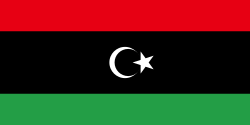| Established | 18 January 2012 |
|---|---|
| Types | government agency |
| Aim | elections in Libya |
| Country | Libya |
| Website | hnec |
The High National Election Commission is a body created in Libya for organising elections following the 2011 Libyan Civil War, starting in 2012. [1]
Contents
 |
|---|
|